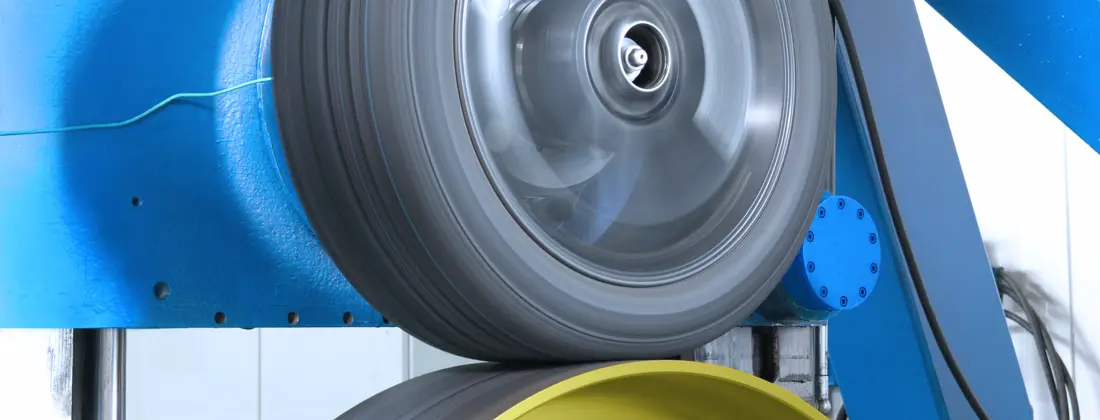ASTM F2870 Ice Traction Tyre Performance Test
The ASTM F2870 Ice Traction Tyre Performance Test is a critical standard that evaluates how well tyres perform on icy road surfaces. This test is essential for automotive manufacturers, especially those targeting regions with harsh winter conditions or areas prone to cold weather. The primary purpose of this test is to ensure tyre safety and effectiveness in reducing accidents during snowy and icy driving conditions.
The ASTM F2870 standard has been developed by the American Society for Testing and Materials (ASTM) Committee E18 on Transportation Properties, which focuses on performance standards for tyres used on land vehicles. This committee ensures that all tyre testing is conducted under consistent and stringent conditions to maintain industry standards.
Compliance with this test is a legal requirement in several countries, including the United States and parts of Europe where winter driving is common. It helps automotive manufacturers ensure their products meet regulatory requirements before being sold on the market. Additionally, tyre retailers often recommend tyres that pass this test for customers living in cold climates.
The test simulates real-world driving conditions by subjecting tyres to a series of controlled tests on an icy surface. This includes testing the tyre's ability to stop and corner effectively when driving on ice. The test is designed to mimic actual winter driving scenarios, providing manufacturers with insights into how their tyres will perform in these challenging conditions.
The ASTM F2870 Ice Traction Tyre Performance Test ensures that tyres are not only safe but also provide optimal performance during winter months. By adhering to this standard, tyre manufacturers can demonstrate their commitment to safety and quality, thereby gaining customer trust and ensuring regulatory compliance.
Scope and Methodology
| Test Parameters | Description |
|---|---|
| Ice Surface Preparation | The ice surface is prepared to a specific thickness and density, ensuring consistency across all tests. |
| Driving Conditions | Tests are conducted in controlled driving conditions that simulate real-world winter scenarios. |
| Instrumentation | High-precision equipment is used to measure tyre performance accurately. |
| Data Collection | Data on braking distances, cornering stability, and overall traction are collected during each test run. |
The ASTM F2870 standard specifies detailed procedures for preparing the ice surface, conducting tests, and collecting data. These guidelines ensure that all tyre manufacturers follow a uniform testing protocol, leading to consistent results across different brands and models.
Customer Impact and Satisfaction
- Safety Assurance: Compliance with ASTM F2870 ensures that tyres are safe for use in icy conditions, reducing the risk of accidents during winter driving.
- Regulatory Compliance: Manufacturers who comply with this standard can sell their products legally in regions where it is required by law.
- Customer Trust: By offering tyres that pass ASTM F2870 tests, manufacturers build trust and loyalty among customers living in cold climates.
The test results are typically shared with customers through product specifications or marketing materials. This transparency helps consumers make informed decisions when choosing winter tyres, knowing they meet rigorous standards for safety and performance.
Environmental and Sustainability Contributions
- Eco-Friendly Materials: Manufacturers using ASTM F2870 are encouraged to use eco-friendly materials that perform well on ice without compromising environmental impact.
- Energy Efficiency: Tyres designed to pass this test often have improved fuel efficiency, reducing the overall carbon footprint of vehicles equipped with these tyres.
The ASTM F2870 Ice Traction Tyre Performance Test not only focuses on tyre safety but also considers the broader environmental impact. By promoting the use of sustainable materials and energy-efficient designs, this test contributes to more environmentally friendly transportation practices.





